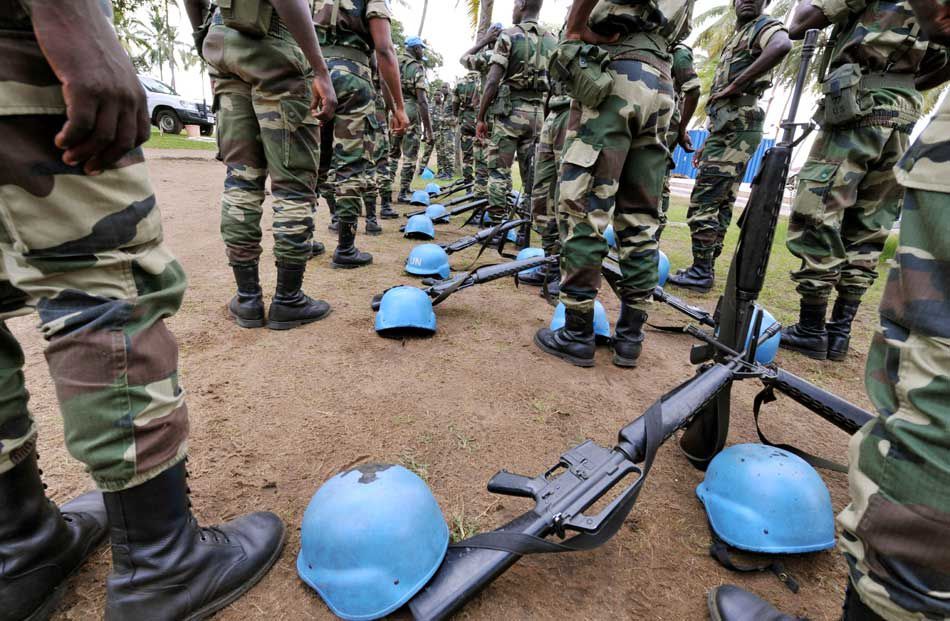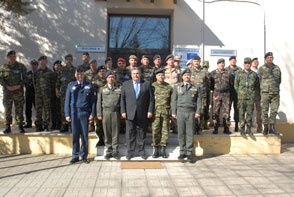1 octobre 2015 – source ONU
Le Secrétaire général de l'ONU, Ban Ki-moon, a appelé jeudi les Etats membres à prendre les mesures nécessaires pour renforcer les opérations de paix des Nations Unies et à contribuer davantage à leur financement.
« Malgré les progrès rendus possibles par les Nations Unies, nous savons que beaucoup trop de gens continuent de souffrir de la guerre, de l'oppression politique et des violations des droits de l'homme », a déclaré M. Ban lors d'un débat thématique de haut niveau organisé au siège de l'ONU, à New York, en marge du débat général de la 70ème Assemblée générale de l'Organisation.
« Les disputes qui couvaient depuis longtemps ont éclaté au grand jour ; les conflits armés sont d'une durée de plus en plus longue ; la violence fait son apparition dans des endroits considérés pendant longtemps comme stables ; et des extrémistes non étatiques et groupes terroristes ont étendu leur portée », a-t-il regretté.
Le Secrétaire général a rappelé que plus de 128.000 personnes sont actuellement déployées au sein de missions de maintien de la paix ou de missions politiques spéciales de l'ONU, soit plus que jamais auparavant.
« Nos mécanismes pour répondre à l'instabilité et à la fragilité ont atteint leurs limites », a constaté le chef de l'ONU lors de l'évènement, qui portait sur la décision de l'Assemblée générale de commémorer le 70ème anniversaire de l'Organisation sur le thème du maintien de la paix et de la sécurité internationale.
M. Ban a rappelé que des examens fondamentaux sont en cours afin d'évaluer les opérations de maintien de la paix de l'ONU, mais aussi l'architecture de consolidation de la paix de l'Organisation et la mise en œuvre de la résolution 1325 du Conseil de sécurité de l'ONU sur la participation des femmes dans les processus de paix.
« Dans les mois à venir, je présenterai à l'Assemblée générale un plan pour renforcer nos efforts pour prévenir l'extrémisme violent. Le Sommet humanitaire mondiale à Istanbul en mai 2016 sera l'occasion essentielle de renforcer notre effort commun pour sauver des vies et soulager la souffrance.
« Et le Programme de développement durable à l'horizon 2030 récemment adopté a des liens étroits avec la paix et la sécurité, y compris son Objectif 16 sur la construction de sociétés inclusives avec des institutions responsables et un accès à la justice », a rappelé le Secrétaire général.
M. Ban a noté l'existence de quatre éléments communs à ces différents évènements : une plus grande importance accordée à la prévention, la médiation et la résolution pacifique des différends et des griefs ; le renforcement de consolidation de la paix, afin de maintenir la paix et prévenir le cycle de la violence dans les sociétés sortant d'un conflit ; la prise en compte des causes des conflits, y compris par une attention accrue accordée aux violations des droits de l'homme, qui sont souvent des signes avant-coureurs d'un conflit à venir ; et l'apport de ressources adaptées.
En conséquence, le Secrétaire général a demandé à la communauté internationale de contribuer financièrement à la prévention des conflits et au financement du Fonds pour la consolidation de la paix.
« Les deux sont chroniquement sous-financés, mais un investissement modeste aujourd'hui peut épargner des interventions beaucoup plus coûteuses demain », a affirmé M. Ban, tout en demandant à l'Assemblée générale de prendre rapidement des mesures en réponse au rapport qu'il lui a remis sur l'avenir des opérations de paix des Nations Unies.
commenter cet article …

























/http%3A%2F%2Fwscdn.bbc.co.uk%2Fworldservice%2Fassets%2Fimages%2F2012%2F12%2F18%2F121218190948_prodi_ouattara_304x171_afp_nocredit.jpg)

